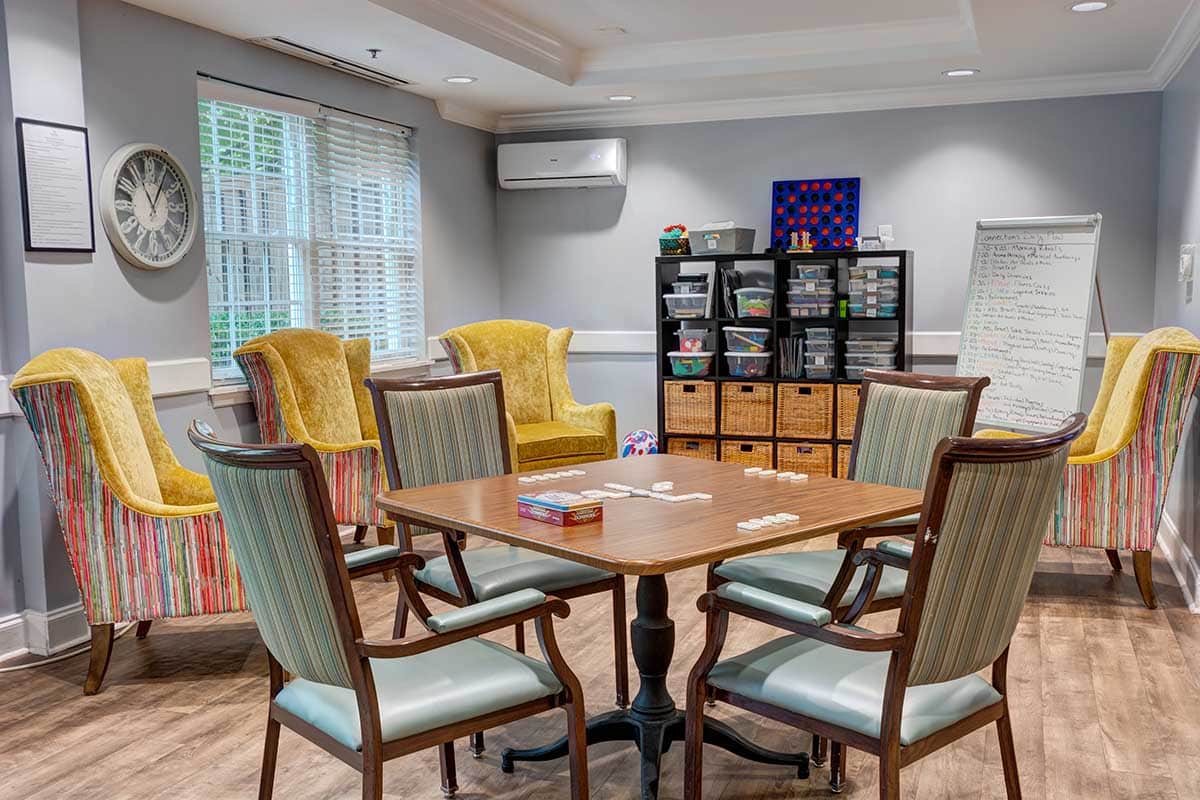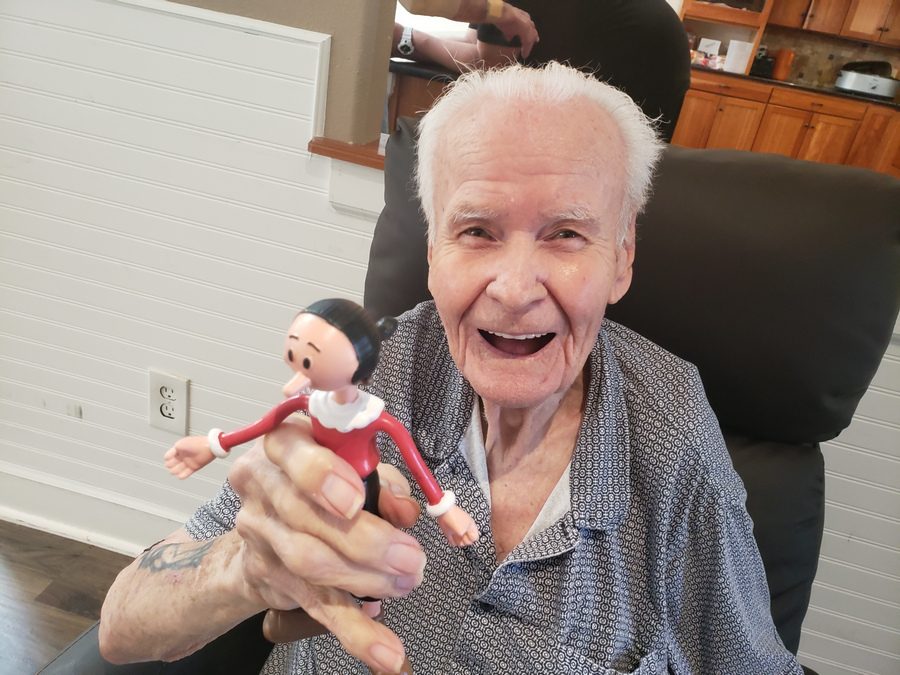Everything About Memory Care Providers: Why Small Memory Care Homes Are a Terrific Selection
Memory treatment services play a necessary role in supporting people with Alzheimer's and dementia. Little memory treatment homes attract attention for their individualized technique and intimate setup. With reduced staff-to-resident proportions, these homes foster stronger connections and customized care. Citizens take advantage of enhanced social communications and a safe atmosphere. As families discover options, recognizing the one-of-a-kind benefits of tiny memory care homes ends up being crucial. What aspects should be taken into consideration when picking the ideal home?
Recognizing Memory Treatment Solutions
While many may know with basic senior treatment alternatives, recognizing memory care solutions is crucial for households facing the difficulties of cognitive decline. Memory care especially caters to people with problems such as Alzheimer's disease and other types of mental deterioration. These services give a structured atmosphere that concentrates on improving the high quality of life for residents via specialized care and support.Memory care facilities are made to guarantee safety and security, commonly including secured atmospheres to protect against roaming. Educated personnel are offered around the clock to help with daily activities, medication management, and personal treatment. Furthermore, memory care programs typically include cognitive excitement tasks, customized to involve locals and promote mental well-being. Families can gain from understanding these solutions, as they enable notified choices concerning their liked ones' care, making certain that their specific needs and choices are attended to in a helpful and thoughtful fashion.
The Benefits of Small Memory Care Homes
Small memory treatment homes offer distinctive benefits that can greatly improve the lifestyle for homeowners with cognitive disabilities. One significant benefit is the intimate environment, which permits tailored interactions amongst personnel and homeowners. This smaller setting fosters purposeful partnerships, reducing feelings of seclusion and anxiousness often experienced by individuals with memory issues.Additionally, the reduced staff-to-resident proportion in small memory treatment homes makes it possible for caregivers to offer more alert supervision and assistance. This strategy not just boosts safety however additionally promotes a complacency for the residents.Moreover, small memory care homes can adapt quickly to the one-of-a-kind needs and preferences of each local, permitting a more homelike environment. Such an atmosphere can urge social involvement and involvement in activities, ultimately enhancing the everyday experiences of those coping with cognitive problems.
Personalized Care Plans for Residents
Customized care strategies are vital in memory treatment homes, as they satisfy the unique demands and preferences of each local. These plans begin with detailed assessments conducted by skilled specialists, who evaluate cognitive capabilities, medical background, and personal rate of interests. This customized technique guarantees that care is not only reliable but also respectful of each person's self-respect and autonomy.Moreover, individualized care strategies are versatile, enabling changes as locals' needs advance with time. This adaptability cultivates a complacency and familiarity, which is vital for individuals dealing with memory difficulties. Caregivers are educated to carry out these plans consistently, supplying assistance that straightens with the homeowners' regimens and preferences.Ultimately, customized treatment strategies boost the quality of life for residents by advertising freedom, wellness, and engagement, making them a fundamental facet of memory care solutions in tiny memory care homes.
Developing a Home-Like Environment
Developing a home-like environment is crucial for promoting convenience and familiarity in memory treatment setups, as it substantially affects locals' psychological health. Tiny memory treatment homes commonly focus on customized touches, such as cozy color palettes, family members photos, and familiar furniture plans, which aid citizens feel a lot more comfortable. Integrating elements reminiscent of a traditional home, like comfortable living spaces and communal areas, urges a sense of belonging.Moreover, utilizing natural light and outside spaces can boost the atmosphere, promoting relaxation and peace. Team members play a substantial role in preserving this atmosphere by involving with residents in a compassionate fashion, treating them like household. Routine activities, such as food preparation or horticulture, can also add to a home-like feel, supplying chances for citizens to join significant experiences. On the whole, developing a supporting environment sustains cognitive function and emotional stability, making it an important facet of memory treatment solutions.
Boosted Social Communication and Community
Enhanced social communication and neighborhood are important components of memory care services. By cultivating customized social engagement and producing a family-like atmosphere, these services advertise significant links among citizens. Team occasions and activities further urge participation, assisting individuals feel much more included and sustained.
Customized Social Engagement
While social interaction is necessary for overall well-being, several people with memory problems frequently struggle to involve meaningfully with others. Personalized social interaction in memory care homes addresses this obstacle by creating customized tasks that cater to locals' special rate of interests and abilities. By concentrating on individual choices, caregivers can foster links that reverberate deeply with each person. Activities such as art treatment, music sessions, and guided discussions promote cognitive stimulation and psychological expression. Furthermore, tiny group settings encourage sociability and enable for more intimate communications, boosting sensations of belonging. This approach not just deals with feelings of seclusion but likewise encourages locals to preserve a sense of identification, eventually adding to boosted mental wellness and top quality of life.
Family-like Environment
In a memory treatment setting, fostering a family-like ambience substantially enhances social communication and develops a sense of area among locals. Smaller memory care homes frequently focus on intimate settings, enabling homeowners to form closer connections with one another and personnel members. This nurturing atmosphere promotes trust fund, which is vital for individuals with memory disabilities. Homeowners are more probable to engage in conversations and share experiences, creating an encouraging network that minimizes sensations of loneliness. The experience of common rooms and routines adds to a feeling of belonging, even more urging social communication (personalized memory care). In such settings, psychological bonds flourish, causing boosted overall wellness and a greater quality of life for locals as they browse their day-to-day experiences with each other
Team Activities and Occasions

Safety And Security and Safety Features in Tiny Houses
Lots of tiny homes created for memory treatment include vital safety and security and security functions to assure the well-being of citizens. These homes frequently make use of safe entrance and leave indicate avoid straying, a typical issue among people with memory disabilities. In addition, security systems and alarm system systems enhance monitoring, guaranteeing that staff can promptly reply to any kind of uncommon activities.Interior designs are tailored for safety, with reduced hazards such as sharp edges and clutter-free pathways. Handrails and non-slip floor covering are generally installed to reduce the threat of drops. Team members are educated in emergency situation procedures, ensuring they are planned for various situations.Moreover, personalized treatment plans might include evaluation of specific security demands, providing tailored remedies for each citizen. Overall, these safety and protection functions produce a nurturing setting where residents can thrive while keeping their dignity and independence.
Just how to Select the Right Memory Care Home
Exactly how can households ensure they pick one of the most ideal memory treatment home for their liked ones? The choice needs careful factor to consider of several factors. Initially, family members must review the facility's team certifications and training, ensuring that caretakers are experienced in managing memory-related problems. Next off, it's Clicking Here crucial to assess the home's environment, focusing on safety and security attributes and whether it promotes a sense of neighborhood and belonging. Going to the facility can provide insight into day-to-day tasks and the social ambience, which are important for mental excitement and emotional wellness. In addition, family members should make inquiries concerning the treatment strategies used, guaranteeing they are customized to specific requirements. Considering the home's area and availability for household check outs can add to a smoother change. By resolving these facets, households can make an educated choice that prioritizes their enjoyed one's comfort and high quality of life in a memory treatment setup.
Regularly Asked Questions
What Qualifications Should Staff Members in Memory Care Homes Have?
Employee in memory care homes need to have appropriate accreditations, experience in dementia treatment, strong communication skills, and compassion. Ongoing training in behavioral monitoring and restorative treatments improves their capacity to support citizens efficiently.
How Do Memory Treatment Services Differ From Typical Assisted Living?
Memory treatment services concentrate particularly on individuals with memory problems, supplying specialized assistance and organized environments. In comparison, typical assisted living provides basic support with day-to-day tasks, lacking the tailored technique necessary for those with cognitive difficulties.
What Sorts of Tasks Are Offered in Memory Care Houses?
Memory treatment homes usually supply a variety of activities made to engage residents. Typical alternatives include art therapy, songs sessions, cognitive video games, exercises, horticulture, and gatherings, all intended at boosting health and cognitive function.
Can Homeowners Bring Their Own Possessions to Memory Treatment Residences?
Residents can usually bring their very own personal belongings to memory treatment homes, allowing them to customize their space - personalized memory care. This method helps create an acquainted environment, pop over to these guys advertising comfort and a sense of identity for the individuals

Exactly How Are Member Of The Family Included in the Care Refine?
Household participants play a vital role in the care procedure, frequently joining decision-making, attending care meetings, and providing emotional assistance. Their involvement promotes a collective atmosphere, from this source improving the homeowner's total health and lifestyle. While several might be familiar with general senior treatment choices, comprehending memory care services is essential for family members encountering the obstacles of cognitive decline. These services offer an organized environment that focuses on improving the quality of life for locals with specialized treatment and support.Memory treatment centers are made to guarantee safety and security, usually including protected environments to protect against straying. Individualized treatment plans are vital in memory treatment homes, as they cater to the unique demands and preferences of each resident. Personnel members in memory care homes must have pertinent certifications, experience in mental deterioration treatment, solid interaction abilities, and concern. Memory care services focus specifically on individuals with memory disabilities, offering specialized support and organized settings.